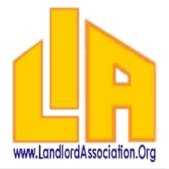We've been getting lots of requests for information about molds in apartment units. There are links below that explain the dangers of mold and how to properly, and hopefully, permanently clean it up so that it does not return.
Unfortunately, we are not lawyers and cannot give out legal advice. We encourage everyone to read each lease and all attachments carefully and thoroughly. The signed lease (including any attachments) is the binding contract between a landlord and tenant. Both can hold each other accountable to what is contained in the lease.
We suggest that people review the Landlord Tenant Laws for your state, the Uniform Residential Landlord and Tenant Act of 1972 (including Amendments), Lease Termination Notice Requirements and Finding a Lawyer. You may find some helpful books in our recently updated Books & Reference area.
All tenants are entitled to a livable, safe and sanitary apartment. An implied warranty of habitability is a warranty implied by law that by leasing (renting) a residential property, the lessor (landlord) is promising that it is suitable to be lived in, and will remain so for the duration of the lease. Failure to provide heat or hot water on a regular basis, or to rid an apartment of insect infestation are examples of a violation of the warranty of habitability. Conditions that violate the implied warranty of habitability vary depending on the state and jurisdiction the apartments are located. Public areas of a building may also covered by the warranty of habitability. The warranty of habitability may also apply to cooperative apartments, but may not apply to condominiums. Any uninhabitable condition caused by the tenant or person(s) under his direction or control does not constitute a breach of the warranty of habitability. For more information on landlord obligations, see Sec. 2.104. Landlord to Maintain Premise of the Uniform Residential Landlord and Tenant Act .
In our personal opinion (not legal advice), if you find mold growing and returning frequently in a unit that you're living in, you may want to consider finding alternative housing, especially if you're experiencing health problems. Here is a link to Mold Dangers and Resources and "A Brief Guide to Mold, Moisture, and Your Home".
Renters: Report all plumbing leaks and moisture problems immediately to your building owner, manager, or superintendent. In cases where persistent water problems are not addressed, you may want to contact local, state, or federal health or housing authorities. [Note: Find your state health department contacts at www.epa.gov/iaq/whereyoulive.html (just click on your state).]
If you ever experience ordinance violations, you may wish to contact your local municipality and/or the local Department of Health to file a code violation complaint.
Be aware, that should they become involved, you may be forced out of your housing and NOT permitted to return until the violation has been corrected.
Monday, April 13, 2009
Subscribe to:
Comments (Atom)
